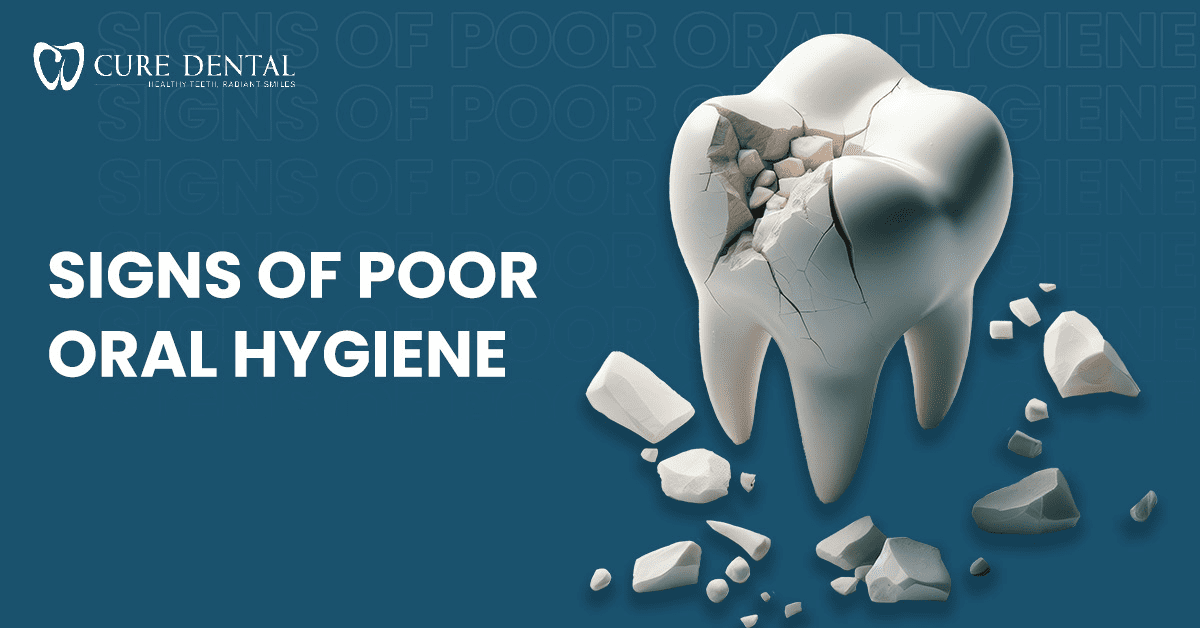One thing that is common among many patients suffering from dental problems is a lack of oral hygiene. Oral hygiene is often the most neglected area for most patients.
A lack of proper dental hygiene can show up in many ways. Inadequate dental care can manifest in many ways, including inflamed gums, pain in the teeth or jaw, abnormal growths in the mouth, or changes to the surface of the tongue. A number of symptoms indicative of inadequate dental care are present in some people. Some of the most prevalent indicators of inadequate dental hygiene behaviors, such as brushing and flossing, are presented below.
5 Common Signs Of Poor Oral Hygiene
Tooth Ache
Always seek dental care if you experience any kind of toothache. Even if you increase the regularity or quality of your cleanings, the discomfort may remain. Significant tooth decay is the most common cause of dental pain. Enough deterioration can eat away at the tooth’s nerve core.
The discomfort from a cracked, chipped, or broken tooth can be excruciating. Some people may feel discomfort after getting a crown or other restoration that doesn’t fit properly. In addition, you may experience discomfort if you grind or clench your teeth, have an infection, or have an abscess.
Bleeding and Swollen Gums
Something is amiss with your dental hygiene routine if you notice any bleeding, swelling, or changes in the color of your gums. A more serious problem with your gums could be lurking beneath the surface. An irritant under the gums might cause moderate swelling that persists.
Finding out if gum disease is in its early stages is something only a dentist can do. In order to stop gum disease in its tracks before it causes gum recession and tooth instability, it is important to treat the gums.
Also Read: Best Tips for Maintaining Your Oral Health
Changes in Tongue
A change in the color or texture of your tongue could indicate a shift in your oral health or a lack of proper dental hygiene. Without fail, you must brush your tongue every night. Use a tongue scraper instead of your fingers if you’re afraid you’ll gag when you clean your tongue. If you observe any changes in your tongue after cleaning your teeth at night, it’s a good idea to consult your dentist.
Abnormal Growth in Mouth
Some patients are able to see growths in the mouth. For some, the treating dentist will bring them to their attention. The most important thing is to promptly detect and cure the growth. A lack of proper dental hygiene, along with other habits, can result in such growths and oral cancer. See your dentist if anything unusual (such as a lump, lesion, sore, or growth) appears in your mouth and doesn’t go away after a few days.
Receding Gums
Your gums will start to wear away if you don’t take good care of your teeth for a long period of time or if you don’t clean them thoroughly enough. The teeth’s roots become visible when gums recede. This exposure clearly indicates a considerable amount of deterioration. Surgery or professional dental cleanings are the best options for treatment.
Conclusion
Oral hygiene not only affects your teeth but also affects other vital organs. Maintaining perfect oral hygiene is critical. Brushing and flossing after each meal might help stop gum disease in its tracks. You may be able to avoid all of the aforementioned symptoms of poor oral hygiene by committing to and actually practicing good oral hygiene.

